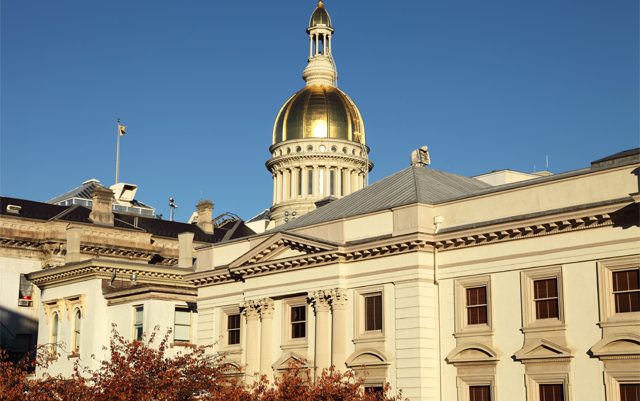One of the states that we’re all betting is going to be one of the next to legalize recreational use of cannabis is New Jersey. The state made the decision to elect a more progressive governor, one who made legalization one of his campaign promises. Now, Governor Murphy is calling for legislators to send a bill to him for signature – hoping to have things in the works for legal cannabis as soon as January 2019. Fortunately, lawmakers are listening. Unfortunately, they don’t all quite agree on what legal cannabis should look like for the state of New Jersey.
Currently, there have been two bills introduced – the “New Jersey Adult Recreational Use Marijuana Law”, which was proposed by Assemblyman Reed Gusciora, and NJ S830, which was introduced in by Senator Nick Scutari. The biggest problem is that there are some major differences between the two bills – especially when it comes to issues like limiting the number of dispensaries, how taxes will work, and home growing specifics.
For example, NJ S830 aims to limit dispensaries to 80 – or two per district, with 40 districts in the state. In comparison, the New Jersey Adult Recreational Use Marijuana Law would allow for up to 400 retail dispensaries throughout the state, with no more than 11 per district. Some are concerned that NJ S830 will be too limited, especially if local municipalities choose to opt-out of legal sale. On the other hand, there are always those who will be concerned that allowing up to 400 dispensaries is too many. This is one issue where there is easily room for compromise between the two bills.
Another important factor for consideration is the taxes that would be imposed on legal cannabis following legalization. NJ S830 would start off with a 7 percent tax in the first year, which will gradually rise to 10 percent in year two, and will rise 5 percent each year after until it reaches 25 percent after five years. The Recreational Use Law would rather see cannabis taxes never exceed 15 percent – starting at the same 7 percent, but remaining the same for the first two years, rising to 10 percent for the third and fourth years and reaching the final 15 percent by year five.
Something lawmakers should consider is that one of the aims of legal cannabis is to end the illegal sales, and one of the best ways to do that is keeping cannabis affordable and not overtaxed.
The last big difference between the two – and another rather important aspect to legalization – is how the laws would reflect home grows. While the Recreational Use law would allow for cultivation of up to six plants at home with a maximum of three flowering plants at a time, NJ S830 makes no mention of home growing.
The approach taken by the Recreational Use law is relatively common in states that have legalized – though the number of plants allowed to be grown and allowed to be flowering at a time varies state-by-state. However, not addressing home growing could be a huge problem for the state. By not addressing home growing issues, they would be leaving things open for excessive home and community grows, which could continue to feed the black market both in and out of state. It could also lead to arrests for cultivating at home, simply because it was not specifically mentioned in the new laws.
There’s clearly a lot that New Jersey lawmakers need to sort out before a legalization bill can be brought to Governor Murphy’s desk. The good news – as pointed out from the get-go – is that they are absolutely working on getting legislation passed. The bad news is that those in New Jersey who are patiently (or not so patiently) waiting for legalization to happen may be waiting a while for lawmakers to come to a middle-ground agreement of when it comes to these vital issues when it comes to passing a reasonable legalization bill.






